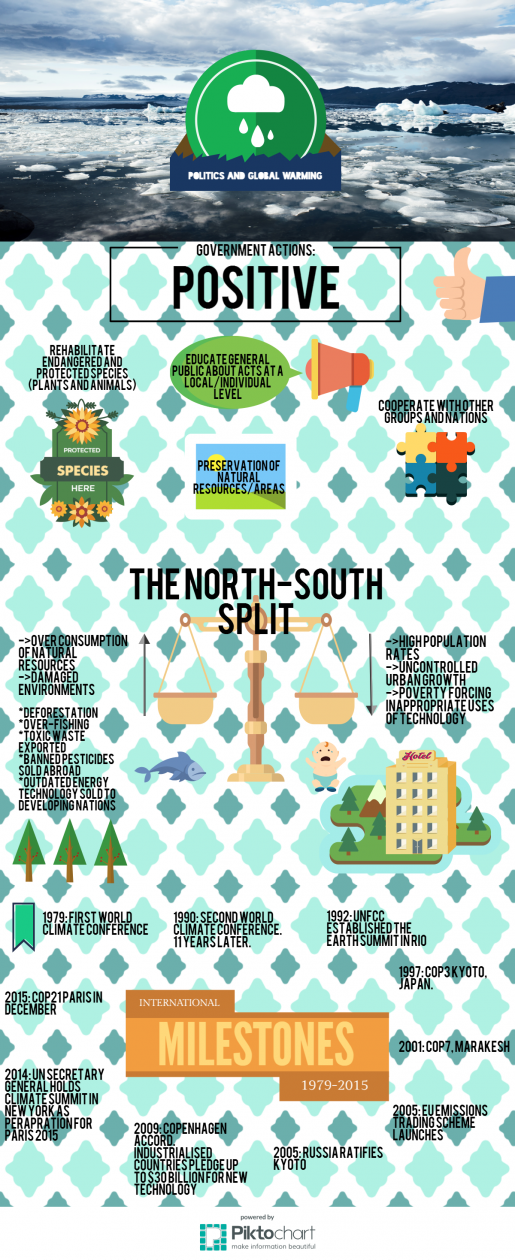Reflecting on our input on climate change, it has become clear to me that a lot must be done on an individual and worldwide level to tackle the issues of global warming. I think that political parties should be much more concerned with making improvements in urban environments to cut down carbon emissions.
From completing the WWF Footprint Calculator, which ranked my annual carbon footprint based on my day to day lifestyle, I was surprised to receive 90%, which is above the world average, however below the UK average.
Admittedly, I don’t find myself paying extra attention to reducing this on a daily basis, although I try to do my bit where I can. I never drop rubbish, I turn appliances off when I’m not using them, and I choose jumpers over turning the heating on when I’m too cold. This has highlighted to me that particularly in the UK, there is a major issue with caring for our environment. Living within a developed country, I do often notice that a lot of money has been dedicated to making alterations such as wind turbines, however when I go on holiday to countries such as Spain, there is a glaringly obvious difference in people’s willingness to keep the streets clean of litter.
My carbon breakdown showed that 51% of my carbon footprint was from home. I currently still live at home with my family, so there is already this issue of the carbon emissions being produced by 4 people. This test has made me realise that there are not enough alterations in our home to promote a sense of eco-friendliness. The tips provided by WWF have been helpful in highlighting to me what can be done to save energy in a home, as well as making me think about what I can do when I’m living on my own to reduce my carbon footprint. 
I have realised now that there is so much more that I could be doing. Small changes to my lifestyle, such as purchasing locally sourced food and walking or cycling wherever I can, will help a great deal. I have previously participated in earth hour, and WWF reminded me of this. I think it’s a great idea and if people were to participate on a worldwide scale, it is all the more encouraging to make even more changes.
From reading the government’s Climate Change (Scotland) Act has reminded me of the long road we have to go in order to reach our target. “The Scottish Ministers must ensure that the net Scottish emissions account for the year 2050 is at least 80% lower than the baseline.” Working in a department store, I easily notice the difference that it makes charging 5p for carrier bags. Constantly, customers have already come prepared with their own plastic or reusable bags, so this shows that this change has worked in a positive way. I have also observed at UWS many rooms with lights that automatically dim down and eventually turn off when there is no movement, and separate bins for general waste and recycling placed around the university. It is very positive to see our university being conscious of the issues of our environment and global warming.




